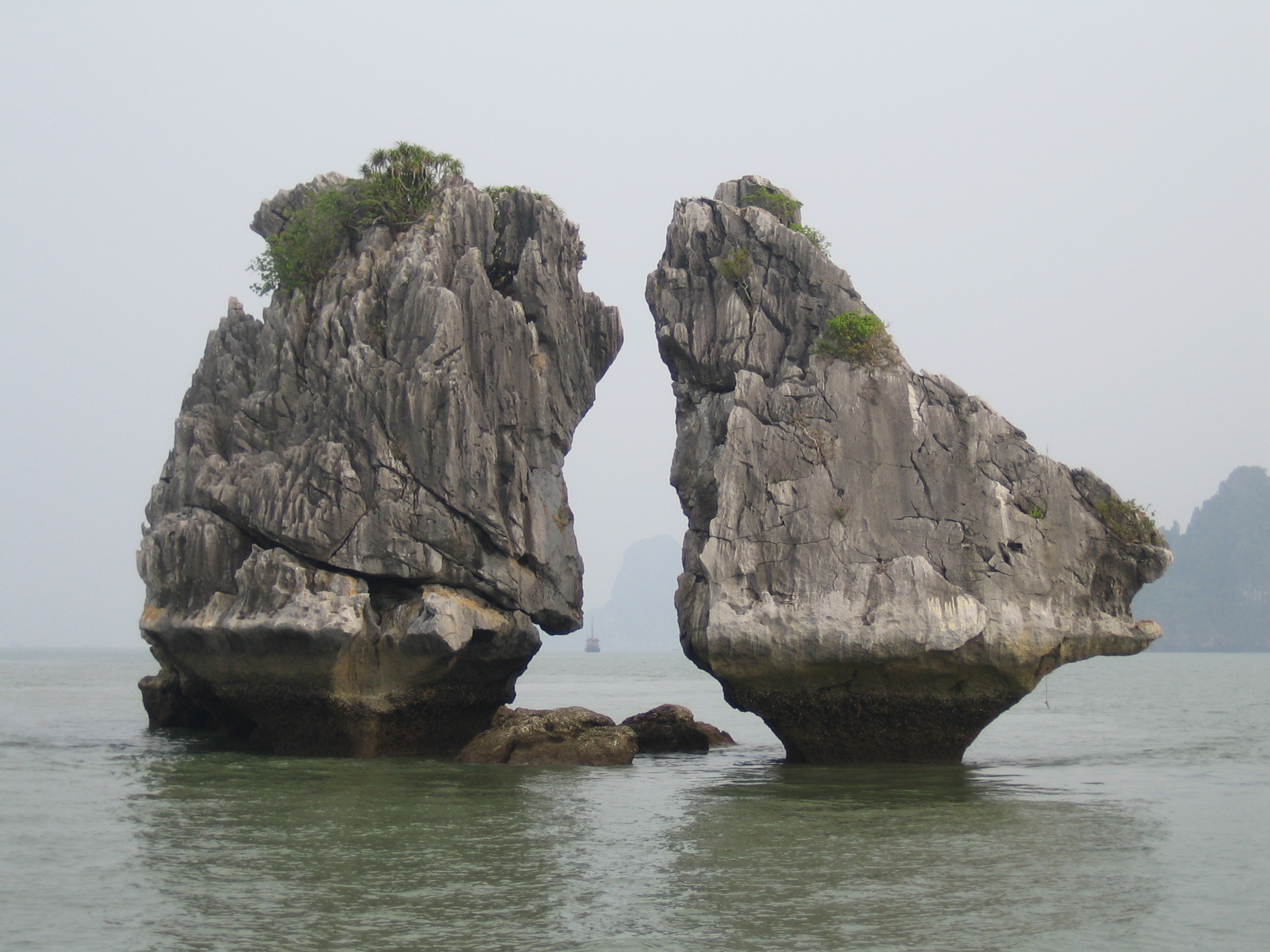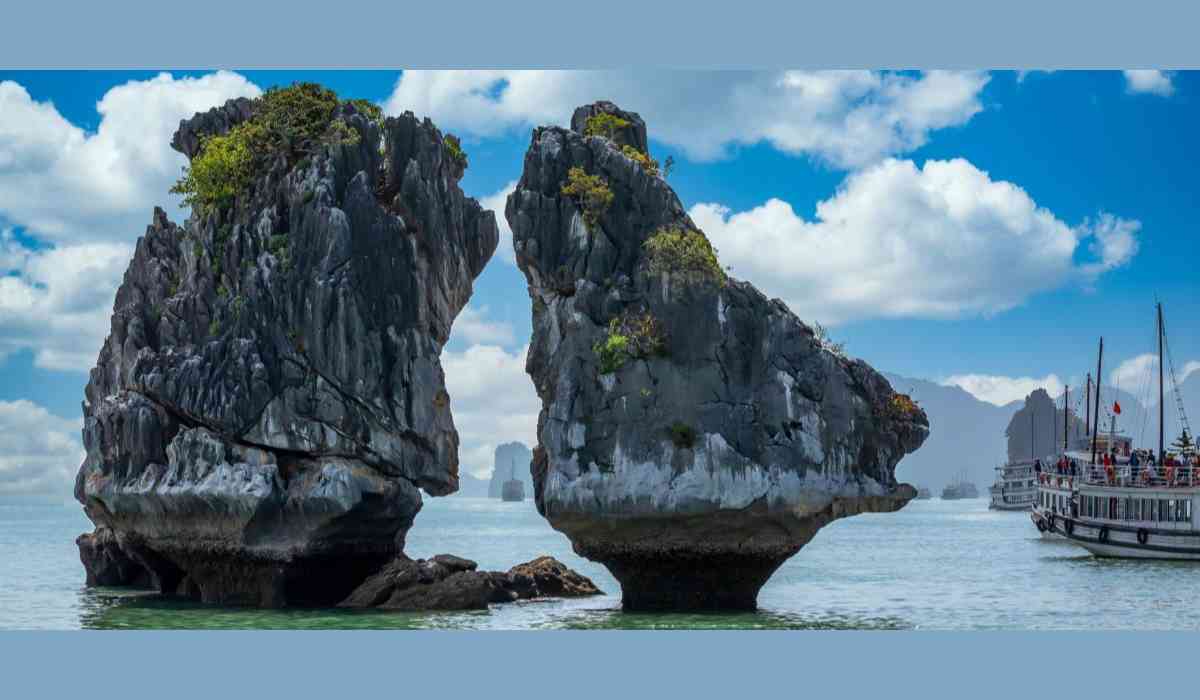The picturesque Ha Long Bay, located in Quang Ninh province, Vietnam, is famous for its stunning landscape adorned with numerous islets. Among these, the iconic twin rocks that seemingly touch, affectionately known as the "kissing rocks," have become a beloved attraction, drawing 4 million visitors in 2019.
Environmental Pressures and Erosion Concerns
However, a recent report has sounded an alarm about the future of these unique formations. Experts have raised concerns that the "kissing rocks" are under the imminent threat of collapse. The primary drivers of this risk are rising sea levels and the close proximity of fishing boats, which contribute to the erosion of the rocks.

Ho Tien Chung, a researcher from Vietnam's Institute of Geosciences and Mineral Resources, highlighted that the erosion process is being exacerbated by unauthorized tourism and illegal fishing activities. In the course of their research, the institute's workers observed instances of tourist boats coming dangerously close to the islets, with some boats stopping within a mere 19 meters of the rocks.
Deterioration and Call for Preservation
Visible signs of deterioration in the form of deep fissures crossing the rocks have been noted by experts. Urgent action is required to prevent a potential collapse. During low tide, the rocks become precariously exposed, revealing the vulnerable footings that are gradually eroding. Without prompt intervention, there is a significant risk of collapse.
Safeguarding the "Kissing Rocks"
To address these concerns and ensure the preservation of the iconic "kissing rocks," the report provides several recommendations. It suggests implementing new regulations within the bay, including imposing speed limits on passing boats, restricting them to speeds of 5-10 km/h (3-6 mph). This measure aims to reduce the disruptive effects of boat-generated currents that contribute to erosion.

Furthermore, the report suggests encouraging local fishermen to refrain from fishing around the rocks, which can contribute to further deterioration. Additionally, the proposal to introduce cement into the cracks of the islets to reinforce their foundations is presented as a viable solution to shore up their stability.
The alluring beauty of Ha Long Bay's "kissing rocks" is at risk due to the combined impacts of environmental factors and human activities. By promptly implementing the recommendations outlined in the report, Vietnamese authorities have an opportunity to safeguard this natural wonder for future generations.
© Copyright 2023. All Rights Reserved Powered by Vygr Media.

























